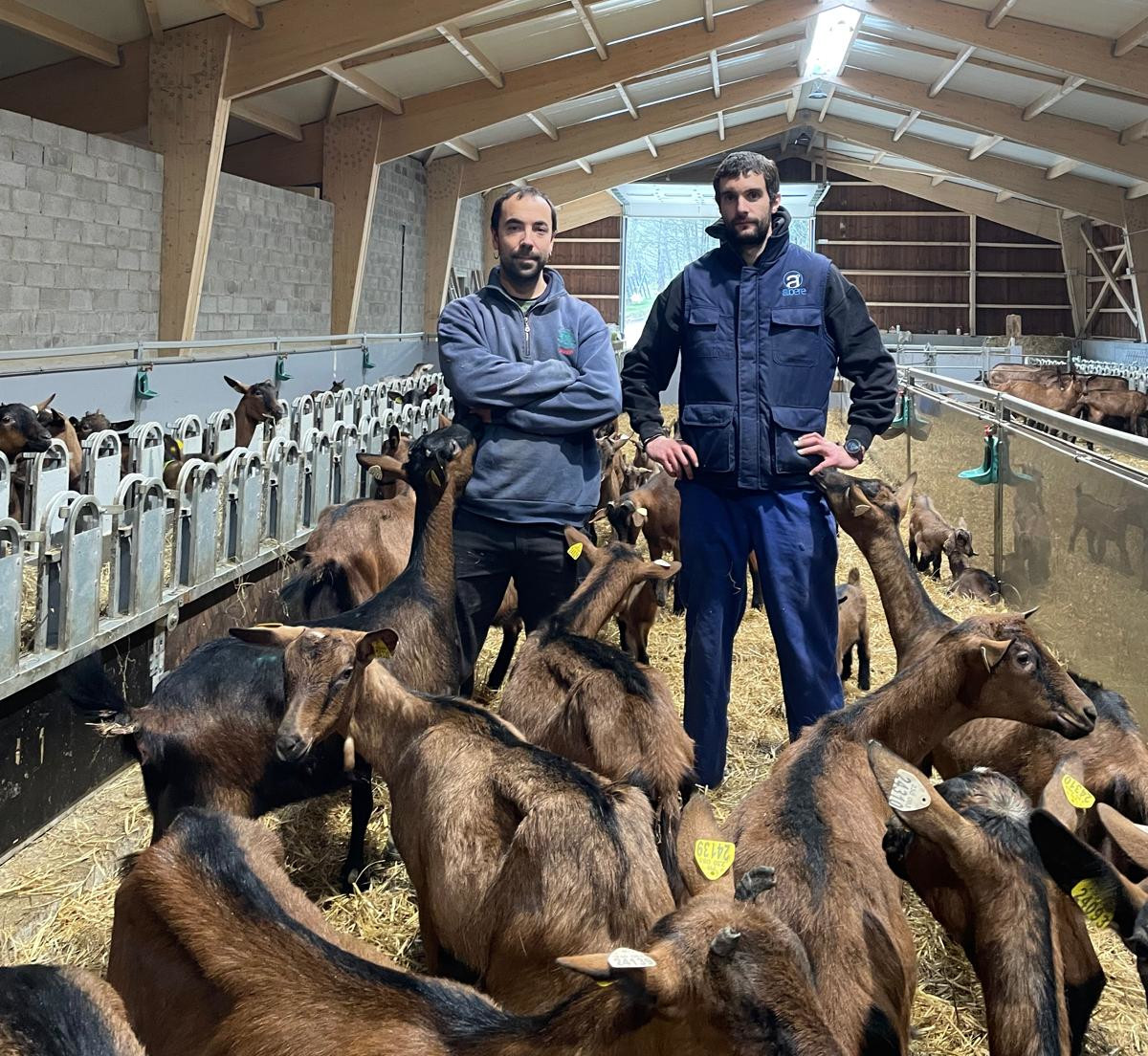Women baserritarras reflecting on European agricultural policy
- The main policy defining food production in Europe is the Common Agricultural Policy (CAP) and the European Green Pact has been in place since 2019, supposedly, to guide the Union’s economy towards sustainability. Although the European framework is often seen a little further away, it has a direct influence on the situation of nearby farmers and the difficulties they face in their daily lives. The baserritars of the Etxaldeko Emakumeak movement have met and produced a document to analyse these European policies and to elaborate their reflections and proposals from the perspective of the baserritarras women. The entire document can be read on the collective's website, but the colleague Maritxu Arroyo has given us some brushes.

For what purpose have you prepared the document on the CAP and the Green Pact?
The CAP is Europe’s oldest policy for the primary sector, which has the largest budget, and therefore has a major influence on the agricultural model it currently chairs. This policy and the Green Pact that was launched in 2019 is important for us to analyse the importance of the Green Pact in the lives of baserritarras women and the entire food system and to reflect collectively on its possibilities and limitations.
The report explains the 2017 reform. What are the possibilities and limits of the reform?
The main change is that each State now has the possibility of developing its own strategic plan. In a way, it brings decisions to the people and to the land, to which we see the potential, but, on the other hand, the division of decision-making spaces may lose the strength of the common policy, the risk of weakening the CAP. The other fundamental change has been the introduction of “eco-schemes”, which, when receiving aid, also involves linking environmental criteria with money. It can be an interesting tool, but as we have always met with agro-industry, which is making huge investments to transform large productions towards the ecological, but without changing the model into nothing. In short, this reform does not alter the rules of the market, so it does not solve the real problems of the primary sector.
What about the Green Treaties?
This is the framework that was launched in 2019 with the aim of promoting a sustainable economy in Europe related to the primary sector and food. It is important because for the first time a European policy has taken into account the concern for climate, the social sphere, the generational shift and the importance of agroecology and small farmers. But of course, it does not question the capitalist and patriarchal model, nor does it make reference to peasant women. In any event, it could give the opportunity to create and influence a political framework of its own in the Basque Country.
What would be the next steps to take to act?
The priority is to extend the debate of the peasant movement to society as a whole, otherwise the whole weight is placed in the hands of farmers. That is why we have drawn up the document to disseminate this debate. The Basque Government should open a table to create its own strategic plan, to discuss and think: How are we going to move from an agricultural policy to a food policy?
Duela lau urte abiatu zuten Azpeitian Enkarguk proiektua, Udalaren, Urkome Landa Garapen Elkartearen eta Azpeitiako eta Gipuzkoako merkatari txikien elkarteen artean. “Orain proiektua bigarren fasera eraman dugu, eta Azkoitian sortu dugu antzeko egitasmoa, bere izenarekin:... [+]
Donostiako Amara auzoko Izko ileapaindegi ekologikoak 40 urte bete berri ditu. Familia-enpresa txikia da, eta hasieratik izan zuten sortzaileek ile-apainketan erabiltzen ziren produktuekiko kezka. “Erabiltzaileen azalarentzat oso bortzitzak dira produktu gehienak, baina... [+]
Ubidekoak (Bizkaia) dira Imanol Iturriotz eta Aritz Bengoa gazteak. “Lagunak gara txikitatik, eta beti izan dugu buruan abeltzaintza proiektu bat martxan jartzeko ideia”, azaldu du Iturriotzek. Nekazaritzari lotutako ikasketak izan ez arren, baserri munduarekin eta... [+]
Iruñean bizi ziren Iñaki Zoko Lamarka eta Andoni Arizkuren Eseberri gazteak, baina familiaren herriarekin, Otsagabiarekin, lotura estua zuten biek betidanik. “Lehen, asteburuetan eta udan etortzen ginen eta duela urte batzuk bizitzera etorri ginen”, dio... [+]
Gipuzkoako hamaika txokotatik gerturatutako hamarka lagun elkartu ziren otsailaren 23an Amillubiko lehen auzo(p)lanera. Biolur elkarteak bultzatutako proiektu kolektiboa da Amillubi, agroekologian sakontzeko eta Gipuzkoako etorkizuneko elikadura erronkei heltzeko asmoz Zestoako... [+]
Emakume bakoitzaren errelatotik abiatuta, lurrari eta elikadurari buruzko jakituria kolektibizatu eta sukaldeko iruditegia irauli nahi ditu Ziminttere proiektuak, mahai baten bueltan, sukaldean bertan eta elikagaiak eskutan darabiltzaten bitartean.





















